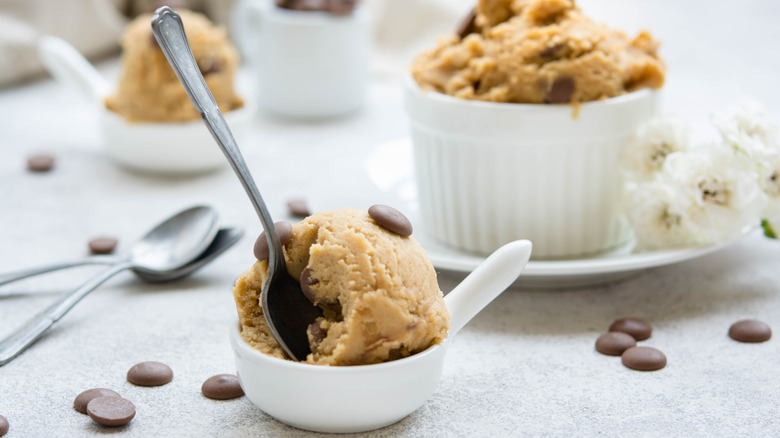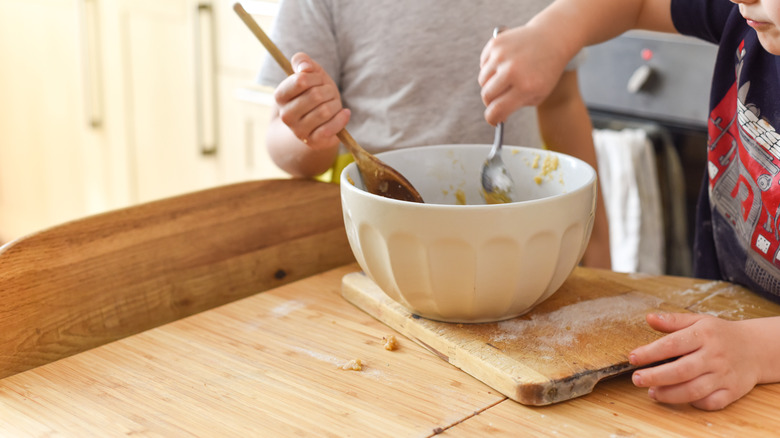Is It Safe To Eat 2-Year-Old Frozen Cookie Dough?
To-eat or not-to-eat. It's an age-old debate. Where do you stand?
Whether you find yourself on the fence, hesitant to take that plunge into a mixing bowl of raw dough – or are staunchly rooted on one side of the debate -– science offers a definitive answer. Once and for all, is it safe to eat old, frozen cookie dough? The answer — sort of.
Science Insider substantiates that it is never safe to eat raw cookie dough. They detail the horrors of a 2009 epidemic that left thousands of U.S. consumers with severe food poisoning: "the raw flour was contaminated with E. Coli bacteria...the eggs can [also] be contaminated with Salmonella, which makes nearly 80,000 people sick in the US every year." Unappetizing, at best.
But, what about frozen cookie dough? Does the freezer kill potential bacteria? The U.S. Department of Agriculture says "no." When food is frozen to zero degrees Fahrenheit, it neutralizes any harmful microorganisms that might be lurking. The keyword here, however, is neutralizes. The frozen bacteria are disarmed, not killed. Once thawed, they can reactivate and pose a series of health risks if consumed. The health miracles of the freezer are, alas, nothing more than a cruel and gilded misnomer.
So, can there be a middle ground?
The moderate approach
Brian Zikmund-Fisher, PhD Professor of Health Education Research, offers a very different (and refreshingly human) perspective. In an interview with CNN, he reports that consuming neither eggs nor flour poses any substantial health risks — if done correctly. He even offers a way around using raw eggs altogether: "[W]hen my kids and I make cookie dough, we never use regular eggs. Instead, we use eggs that have been pasteurized to kill any harmful bacteria without actually cooking the egg itself." The USDA approves his method: they condone in-shell pasteurized eggs for safe consumption without cooking.
Flour, however, is a larger obstacle. Dietitian Beth Czerwony of the Cleveland Clinic airs on the side of extreme caution. She warns young children should avoid uncooked flour so carefully that they even making salt dough ornaments during the holidays is dangerous. Zikmund-Fisher thinks otherwise. He testifies that, although occasional E. coli outbreaks are worthy of both caution and attention, he does not consider the risk margin large enough to reasonably deter people from enjoying raw cookie dough. Sure, it's a risk, but not risky enough to cast aside a chocolate chip spoonful forever.
So, the most definitive answer according to science is to follow your heart. But, according to United Regulations, uncooked cookie dough can last 9 to 12 months in the freezer. Any longer than that, and you should probably throw it out — which means it's time to whip up a fresh batch.

